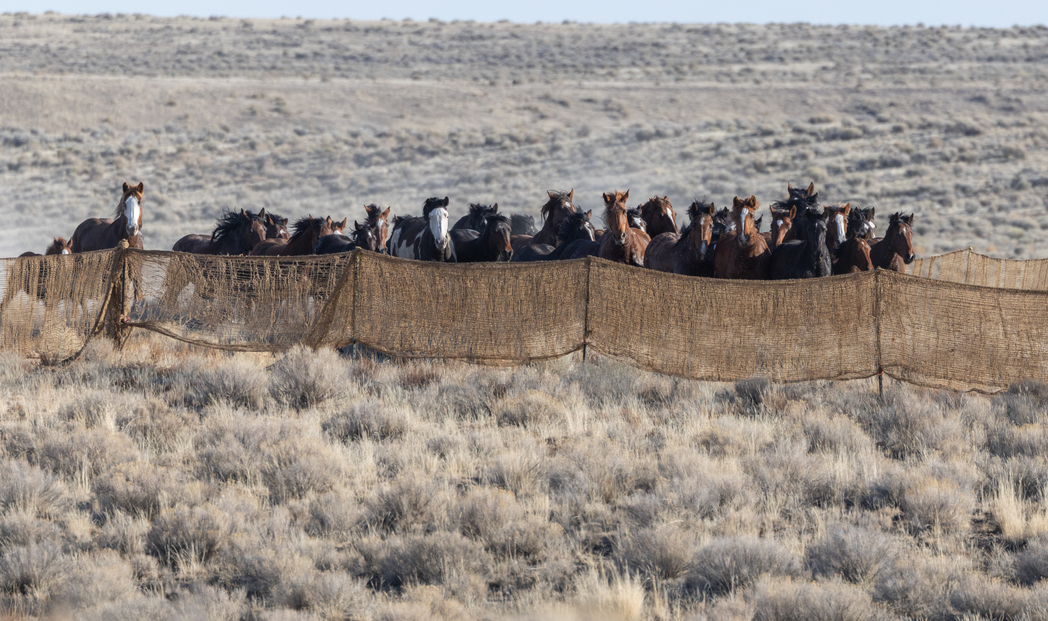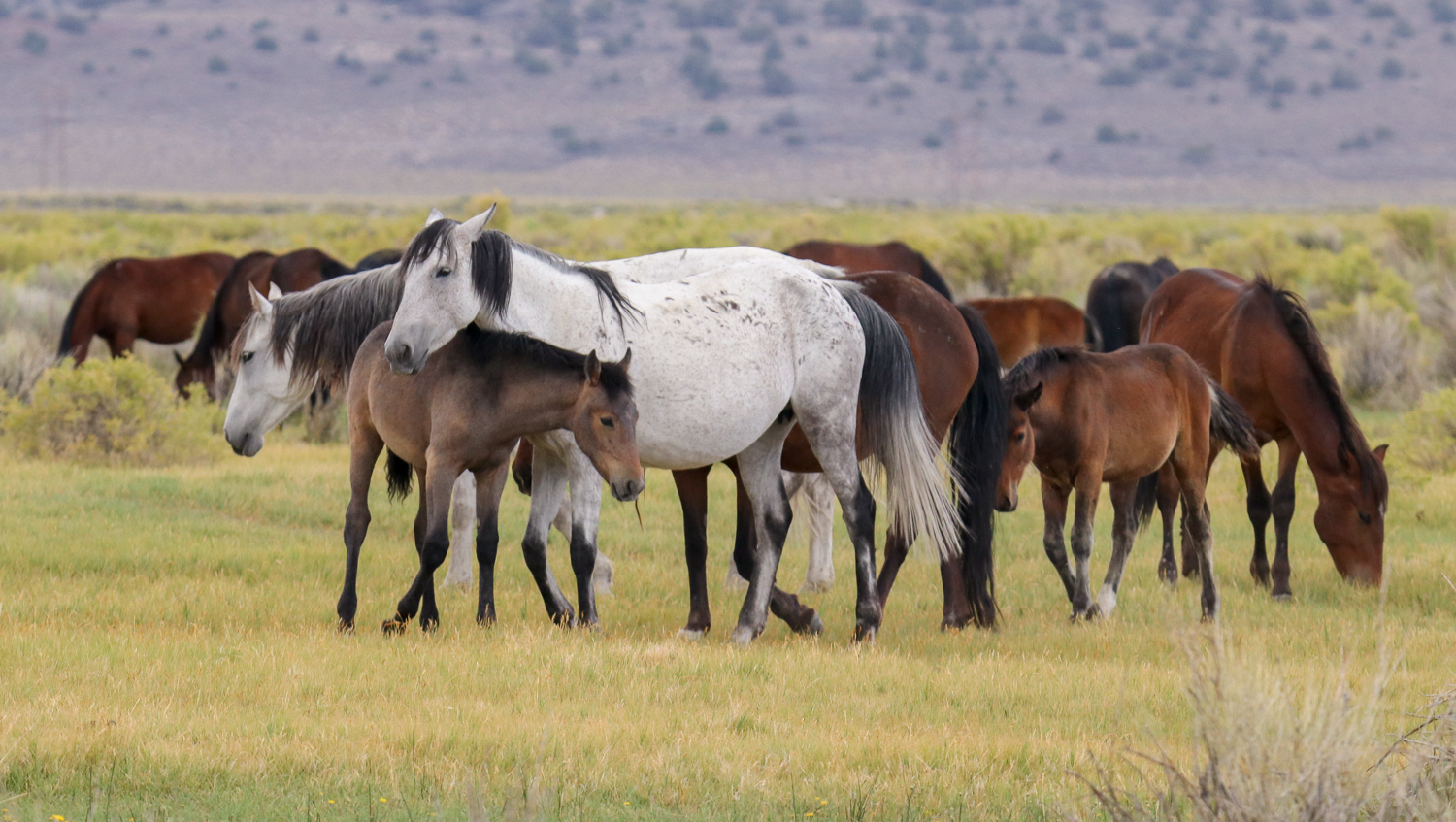

Ensuring the Long-term Health of Wild Horse Populations
Genetic diversity is crucial for the survival and resilience of wild horse populations. By maintaining a healthy gene pool not only do we reduce the risk of genetic disorders but also ensure that wild horses can adapt to changing environments.If populations get too low, genetic bottlenecks can occur or even complete population collapse. Discover how AWHC is working to preserve the genetic diversity and viability of America's wild horses.
.jpg)




Learn why genetic diversity is vital for the health and sustainability of wild horse populations.
Genetic bottlenecks happen when a population's size is significantly reduced, leading to a loss of genetic variation. This can occur due to natural disasters, disease outbreaks, or human activities such as roundups. Protecting wild horse populations from drastic reductions is crucial to preserving their genetic health.
Genetic diversity provides the raw material for evolution and adaptation. Populations with high genetic diversity are more likely to adapt to changing environmental conditions, such as climate change, habitat loss, and new diseases. Ensuring genetic diversity helps wild horses remain resilient in the face of these challenges.
Monitoring the genetic health of wild horse populations is essential for informed management decisions. Genetic studies help identify at-risk populations, track changes in genetic diversity over time, and guide conservation strategies to maintain healthy and viable populations.



American Wild Horse Conservation is a national leader in using fertility control to keep Wild Horse populations from increasing to the point where the BLM historically employs roundups and removals. I am beyond grateful for this amazing organization’s leadership and participation, without which the [Colorado] Wild Horse Project would not have come to fruition.

I wanted to get involved with AWHC when I saw videos of wild horses getting rounded up by helicopters. These animals are majestic in the wild; seeing them forced into captivity is heartbreaking and cruel. The government can do better, and I’m looking forward to educating the American public and working to keep wild horses in the wild.

There are currently 62,000 wild horses and burros in long term holding. This year, the BLM intends to remove an additional 20,000 from public rangelands, with the North Lander animals to account for 14% of those.

Your involvement is key to safeguarding wild horses and burros.
Your contribution helps fund our advocacy, litigation, and protection initiatives.
Urge your representatives to support policies that help protect wild horses and burros.
Join our team of dedicated volunteers and make a direct impact.
Discover how AWHC is leading efforts to preserve the genetic health and viability of wild horse populations.
AWHC collaborates with leading scientists, universities, and research institutions to advance the understanding of wild horse genetics. These partnerships enhance our ability to develop and implement effective conservation strategies.
AWHC develops and advocates for conservation strategies that prioritize genetic diversity. These strategies include habitat protection, population management, and the introduction of new genetic material to at-risk populations.
Learn how AWHC is actively implementing solutions to protect wild horses and burros, ensuring their well-being and preserving their natural habitats.

